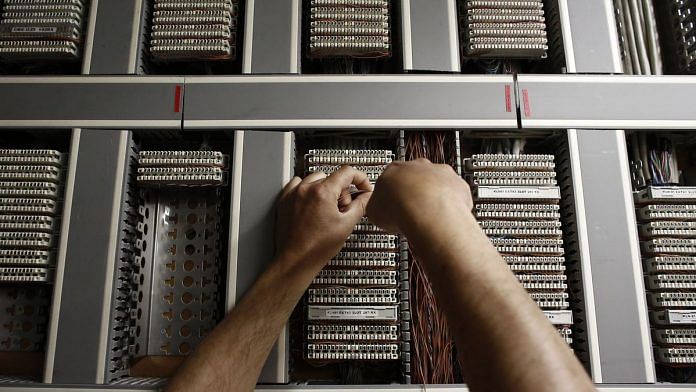New Delhi: Data storage concerns will soon be history with researchers at the Indian Institute of Technology (IIT), Mandi, developing magnetic Random Access Memory (RAM) which is faster, more energy-efficient and capable of storing more information in a smaller volume than existing data storage technologies.
The team, which is in process of patenting the technology, claims that the Spin-transfer torque (STT) based nano spintronic devices will also put an end to computer data loss due to interruptions of power supply and hence will have the capability to transform next-generation computers, smartphones and other gadgets.
According to the researchers, magnetic RAMs in which data are represented as spin of electrons, promise better storage capabilities than conventional charge-based RAM.
A device using spintronic technology utilises the spin of the electrons to transmit and process information, unlike normal electronic devices that are driven by electron charges. Harnessing the spin of electrons to be manipulated from the magnetic state leads to what is known as Spin-Transfer Torque-Magnetic Random Access Memory (STT-MRAM), they said.
“Universal memory solutions must have high storage density, ultrafast operability and nonvolatility, that is, able to retain data even when there is no power. This need is particularly relevant in modern times as the abundance of digital devices is expected to generate data volumes requiring 1 trillion hard drives at every instant by 2024.
“Existing semiconductor RAM cannot meet these massive demands of data storage. Indeed, experts in data science predict that the demand for memory capacity will outpace production by the end of 2020,” Satinder K Sharma, Associate Professor at IIT Mandi’s School of Computing and Electrical Engineering, told PTI.
Also read: Aarogya Setu is fastest app in the world to reach 50 million users despite privacy concerns
The research by the IIT team has been published in IEEE Transactions on Electron Devices, a reputed international journal. The five-member team includes Sharma, his colleague Srikant Srinivasan and three research scholars– Mohamad G Moinuddin, Shivangi Shringi and Aijaz H Lone.
“STT-MRAM devices are non-volatile and have much higher storage densities and endurance than current CMOS based RAM technologies. Another advantage of these kinds of memory is that they can be integrated with conventional silicon-based memory technologies, which results in huge storage potential,” Sharma said.
According to Srikant Srinivasan, also associate professor at the institute, one major hurdle to scaling of spintronics-based RAM has been the high operating current density but the problem has been addressed by this research.
“Our devices have very low switching current density and free-layer switching duration of less than three nanoseconds. This is a very promising start and further optimization will make them prospective candidates for next-generation RAM devices , said Srinivasan.
Also read: No phones, no money for recharge — Kejriwal’s tech-based solutions for poor have no takers



